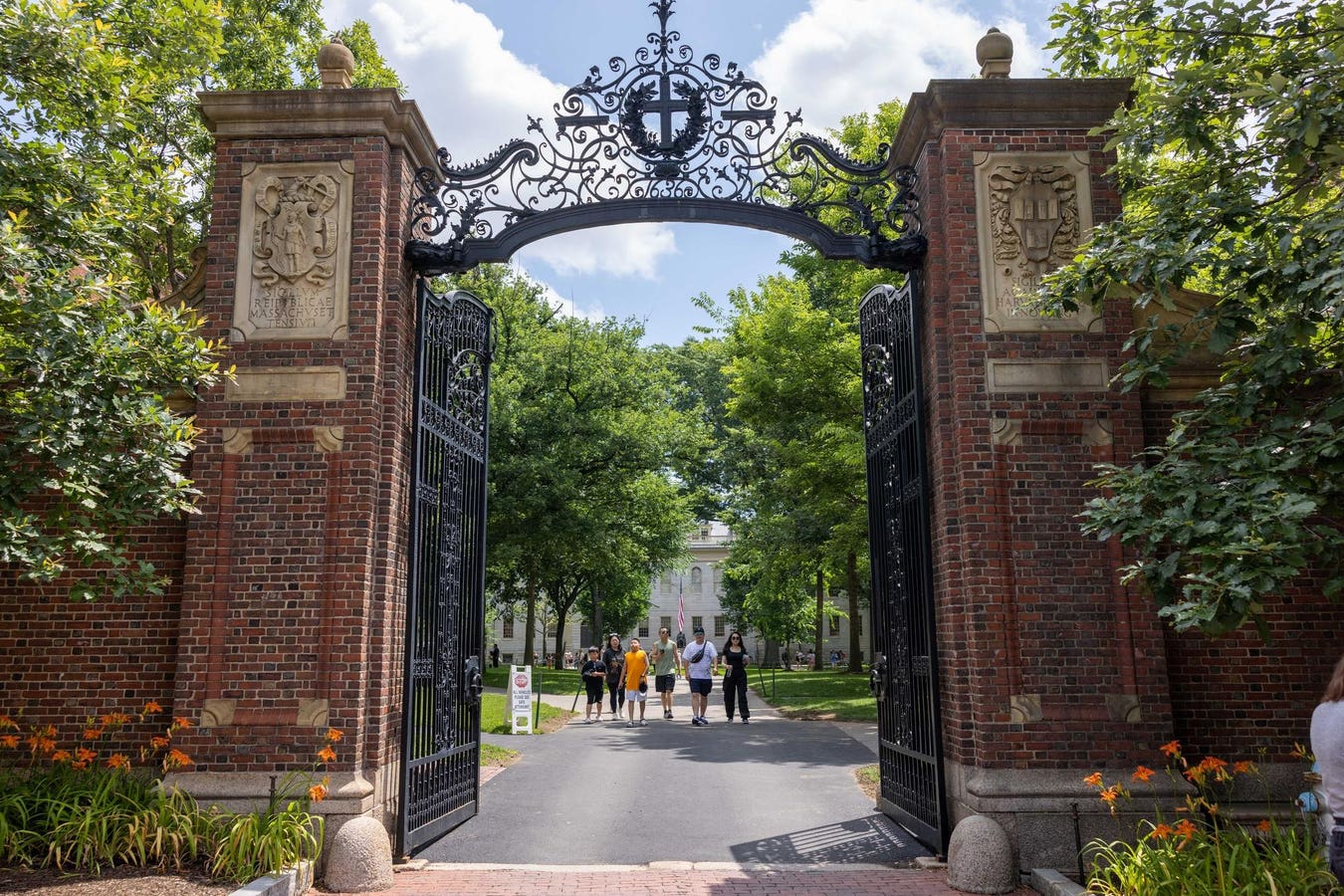CAMBRIDGE, MASSACHUSETTS – JUNE 29: People walk through the gate on Harvard Yard at the Harvard … [+]
In today’s competitive landscape, gaining admission to a top-tier college requires more than stellar grades and impressive extracurriculars. It’s about the delicate balance between academics, extracurricular activities, and personal development. At the heart of this balancing act lies executive function — the cognitive processes that allow students to plan, focus attention, remember instructions, and juggle multiple tasks successfully.
The Critical Role of Executive Function in College Admissions
Executive function (EF) skills, including time management, organization, self-regulation, and goal setting, are crucial for college-bound students. Research has shown that adolescents with strong executive function skills are more likely to achieve academic success, adapt to new environments, and demonstrate the resilience necessary to thrive in college. According to a 2019 study published by Psychology and Neuroscience, EF skills are better predictors of academic success than IQ alone, accounting for variance in students’ academic achievements across their schooling years.
However, what sets successful applicants apart isn’t just academic excellence but also their ability to demonstrate self-discipline, self-motivation, and unique personal qualities — all underpinned by robust executive function skills. Admissions officers are increasingly looking beyond test scores and GPAs, focusing on how students manage their lives outside the classroom. Do they balance a rigorous academic load with meaningful extracurricular activities? Can they articulate personal growth through challenges? These questions are central to a holistic admissions approach.
Research from the University of Chicago highlights the importance of noncognitive factors — a term encompassing behaviors, skills, attitudes, and strategies crucial to academic performance, which are not measured by standardized cognitive tests. This is because student achievement is reflected in essential noncognitive attributes like perseverance, time management, and self-regulation—foundations that are rooted in executive function.
The term “noncognitive” is somewhat misleading, suggesting a divide between cognitive and noncognitive skills. In reality, these factors interact closely to shape learning. For example, strong study habits and social skills are deeply intertwined with cognitive processes, making it essential to recognize that both types of skills are crucial for academic and college admissions success. Researchers argue that students and schools should focus on cultivating these noncognitive factors, such as academic perseverance and mindsets, which significantly influence a student’s ability to adapt and succeed.
The following noncognitive skills are foundational to college admissions success.
Time Management
Imagine a high school senior balancing a demanding course load that includes multiple Advanced Placement (AP) classes while actively participating in extracurricular activities such as serving as the president of the Student Council, founding a community service organization, and competing on a national sports team. This student uses time-blocking techniques to allocate specific hours for schoolwork, extracurriculars, and personal time each week. By setting clear priorities and sticking to a structured schedule, the student maintains a high GPA and demonstrates strong leadership skills, which makes their application stand out to top-tier universities.
Organization
Consider a student applying to competitive colleges who decides to create a digital portfolio to effectively showcase their involvement in extracurricular activities, volunteer work, and personal achievements. The portfolio is meticulously organized with sections dedicated to each area, featuring summaries, project links, and a timeline of leadership roles in various clubs. This clear presentation helps admissions officers quickly grasp the student’s breadth of involvement and depth of commitment, which can significantly strengthen their application and increase their chances of acceptance into selective programs.
Self-Regulation and Emotional Control
Take the example of a junior who struggles with anxiety during exams and high-pressure situations. This student begins practicing mindfulness techniques, such as short daily meditation sessions and reflective journaling, to manage stress and improve emotional regulation. Over time, these practices help the student develop greater resilience, enabling them to perform better academically and engage more deeply in extracurricular activities like debate club or theater. When applying to colleges, the student can articulate a compelling narrative about overcoming personal challenges, appealing to admissions committees looking for candidates who exhibit personal growth and emotional maturity.
Goal Setting and Reflection
Imagine a student who excels by continuously setting and revising personal and academic goals throughout high school. Each year, they identify specific milestones, such as achieving top scores in challenging courses, securing leadership roles in clubs, and completing community service projects aligned with their interests. The student uses tools like goal-setting journals and regular mentorship to reflect on their progress, adapt strategies, and celebrate achievements. This reflective approach both keeps the student motivated and provides strong content for college essays, showcasing their ability to plan, execute, and learn from experiences.
In a college admissions landscape that is more competitive than ever, executive function skills have emerged as a critical differentiator. These skills, which encompass time management, organization, self-regulation, and goal setting, are vital for balancing the academic, social, and personal demands of high school and beyond. By fostering these skills, students will not only enhance their college applications but also build a foundation for long-term success in higher education and life.
